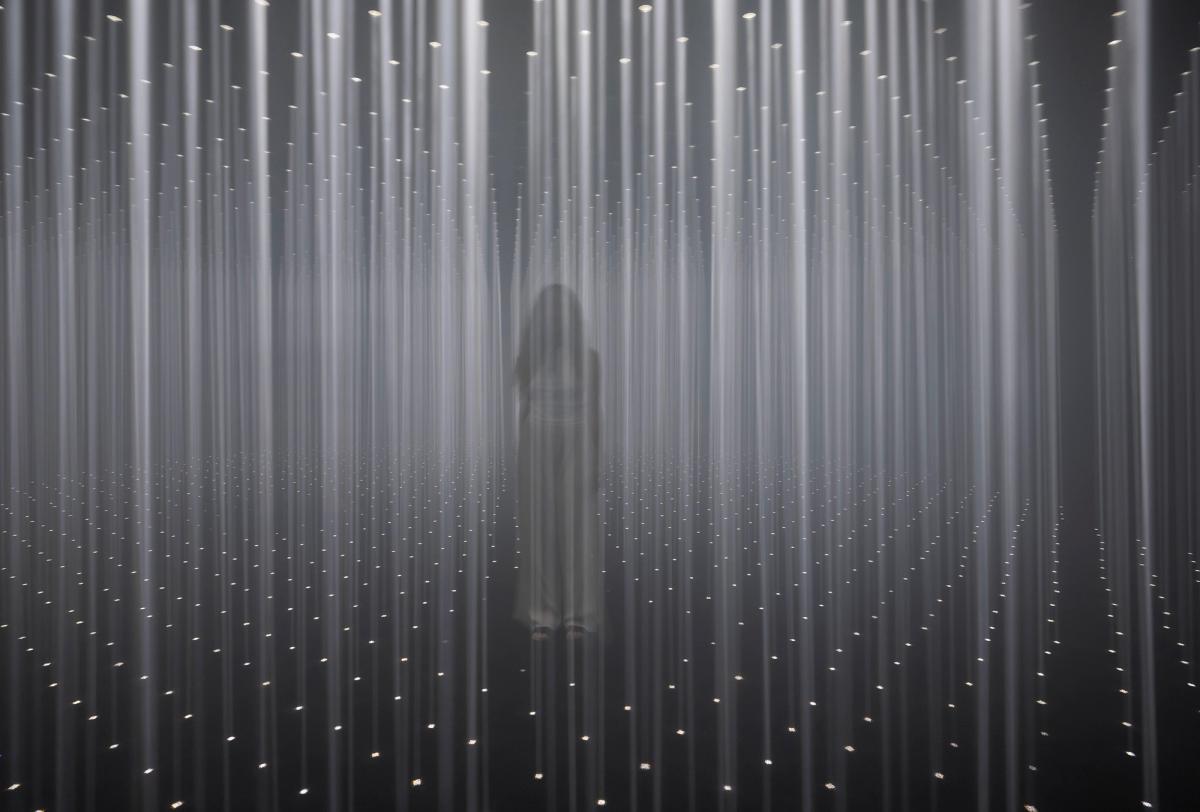VIP visitors to a new, large-scale installation by the art collective Random International—known for their ubiquitous Rain Room (2012) downpour interactive piece—will receive their own NFT (non-fungible token) as part of their $200 entry fee. The new work, known as Living Room, was unveiled this week in a purpose-built pavilion at Faena Beach (until 4 December) and will tour post-Miami Art Week (locations to be confirmed).
Aorist, the art and technology platform, commissioned the work, while Faena Art, the non-profit organisation founded by the real estate developer Alan Faena, is a project partner. General entry tickets to the timed installation cost $25.
The piece bridges immersive art and the blockchain, claim the project organisers. Each visitor’s movements around the darkened Living Room installation—where shifting lights and sounds respond to each person’s movements—are tracked by motion sensors, drawing on Web3 technology. “This data allows you to co-create a unique NFT of your experience, as seen through the machine’s eyes,” says an Aorist statement.
“We became interested in NFTs when we discovered we could mint behaviour. It is making us [people] the interface,” says Hannes Koch, co-founder of Random International. Pablo Rodriguez-Fraile, the founder of Aorist, adds in a statement: “This body of work sets a new precedent in how the digital and the physical can come together to redefine how visitors experience and collect art.”
Random International’s new piece is part of a wave of interactive art in Miami this week. Amsterdam-based Studio Drift’s “drone sculpture” Franchise Freedom, first seen in Miami Beach in 2017, returns for a special performance over the roof of the Miami Beach Convention Center (1 December, 7pm). Meanwhile, the Mexican-Canadian artist Rafael Lozano-Hemmer presents Pulse Topology at Superblue (until August 2023), comprising 3,000 light-bulbs that glimmer and flicker according to participants’ heartbeats.


